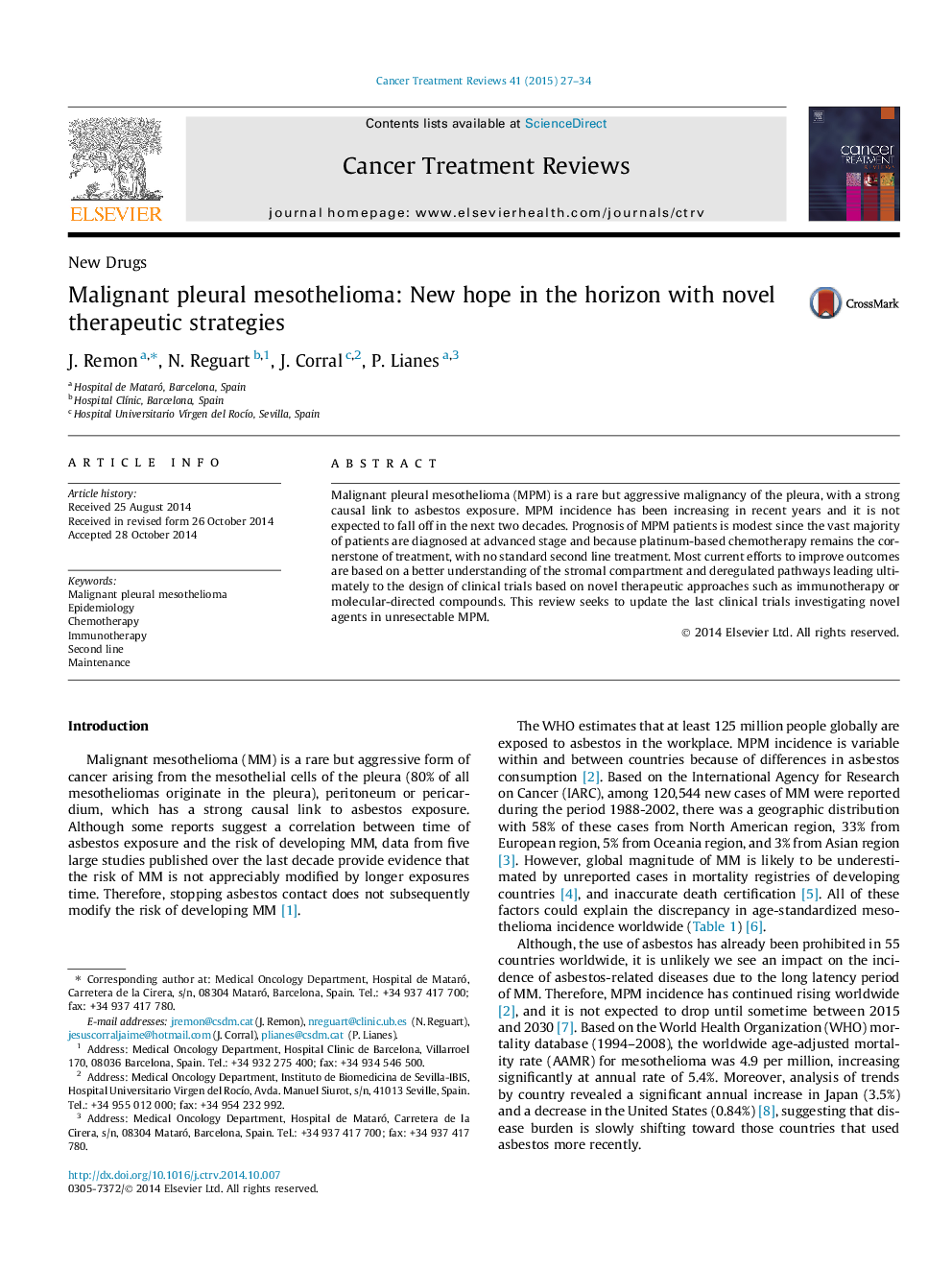| Article ID | Journal | Published Year | Pages | File Type |
|---|---|---|---|---|
| 3979791 | Cancer Treatment Reviews | 2015 | 8 Pages |
•Malignant pleural mesothelioma (MPM) incidence has increased and it is not expected to drop until 2015 and 2030.•Germline mutations could help identifying individuals at high risk of MPM who could be targeted for early intervention.•Molecular landscape and identification of deregulated pathways may help to achieve a customized therapy in MPM.•FAK inhibitors, antiangiogenic therapies, NGR-hTNF are promising new therapies in MPM.•Immunotherapy offers a promising activity in MPM.
Malignant pleural mesothelioma (MPM) is a rare but aggressive malignancy of the pleura, with a strong causal link to asbestos exposure. MPM incidence has been increasing in recent years and it is not expected to fall off in the next two decades. Prognosis of MPM patients is modest since the vast majority of patients are diagnosed at advanced stage and because platinum-based chemotherapy remains the cornerstone of treatment, with no standard second line treatment. Most current efforts to improve outcomes are based on a better understanding of the stromal compartment and deregulated pathways leading ultimately to the design of clinical trials based on novel therapeutic approaches such as immunotherapy or molecular-directed compounds. This review seeks to update the last clinical trials investigating novel agents in unresectable MPM.
